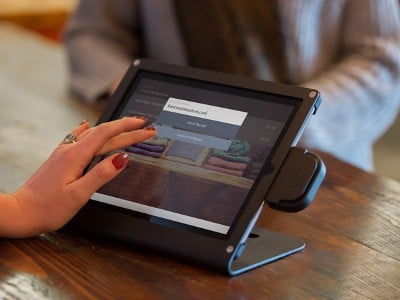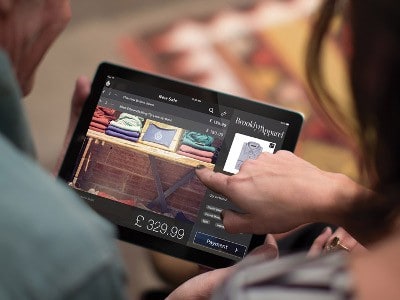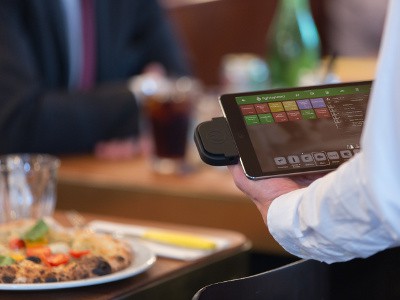
 On the eve of hosting a housewarming event at their new headquarters, the architecturally stunning 40,000 sq. ft. Gare Viger building, Montreal retail point-of-sale platform developer Lightspeed is also announcing a series of impressive milestones.
On the eve of hosting a housewarming event at their new headquarters, the architecturally stunning 40,000 sq. ft. Gare Viger building, Montreal retail point-of-sale platform developer Lightspeed is also announcing a series of impressive milestones.
The Lightspeed POS platform now processes over $10 billion worth of transactions annually for its retail and restaurant clients, counting over 24,000 customers in more than 100 countries. The average Lightspeed customer has $600,000 processed annually through the platform, which has helped the company grow its bookings 123% year over year.
In the past year alone, Lightspeed closed a $35 million funding round, led by iNovia Capital and previous investor Accel Partners.
“Lightspeed’s focus on giving retailers and restaurateurs the tools that can not only help them survive, but thrive in this changing landscape is paying off – we are actually seeing our customers grow significantly faster than the market average,” said Lightspeed founder and CEO Dax Dasilva.
This month, the Lightspeed platform was approved by Quebec’s MEV program, a sales recording module meant to cut down on tax fraud in the restaurant industry by recording sales in real time through a restaurant’s point-of-sale system.
Quebec calculates that missing revenue through under-reporting or fraud constitute a loss of $425 million in tax revenue annually. Lightspeed is the first iPad based POS platform to be approved for the MEV program.
The point-of-sale retail industry is also in flux, with the imminent Europay Mastercard and Visa (EMV) liability shift approaching, and the overall application of mobile technology to the retail checkout process.
“There are a lot of factors at play that make it an incredible time to be in the retail tech industry – the October 2015 deadline for U.S. retailers to change how they process credit card payments; the explosion of contactless payment options; the new bar for convenience, speed and service,” continues Dasilva.
October 1, 2015 represents a major shift in the POS retail industry, with the industry wide EMV liability shift taking effect. As of that date, responsibility for fraudulent use of cards will fall on retailers who have not updated to the chip-and-pin payment cards now widely used in Europe, removing liability from credit card companies. This means that the days of the magnetic stripe are finally over.
Along with other Canadian tech success stories, Lightspeed has witnessed incredible recent growth after a long period of bootstrapping its business from lean beginnings.
“We went for seven years boot-strapped,” said Dasilva in an interview with Cantech Letter last June. “So it’s very much in our culture to build something natural, something organic and real, as opposed to just inflate something that’s not really without substance and then hype it. It’s not really how we built the company.”
At that time, Lightspeed had just crossed the 200 employee threshold. Only a year later, the company has more than 300 employees. Lightspeed has also opened a London office, which it projects to double in size by the end of the year.
And Dasilva’s ambition for Lightspeed remains very much to build a billion-dollar “unicorn” Canadian company, something that only a few years ago seemed like crazy talk when Ryan Holmes starting bandying the idea about while speaking about Hootsuite in the context of his Maple Syrup Mafia (the Canuck version of Silicon Valley’s PayPal Mafia).
“Canada has become a strong incubator for rapidly growing tech companies – particularly in commerce – and it is finally having its day,” says Dasilva. “In the last 18 months we’ve seen a surge of investments and successful exits, and all signs point to that continuing,” said Dasilva. “We are here to say: you no longer have to be in Silicon Valley to be a unicorn.”
Leave a Reply
You must be logged in to post a comment.




 Share
Share Tweet
Tweet Share
Share



Comment